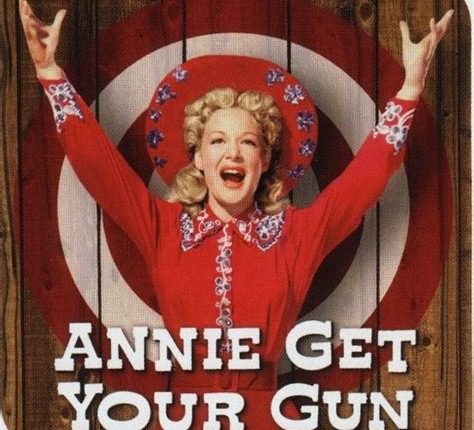
Most of us will recognize the romanticized image of the tortured artist, suffering for their creative life. Artists have famously struggled with their mental health- Vincent van Gogh. Kurt Cobain. There does seem to be a relationship between creativity and mental/spiritual distress.
Like any person, artists face burnout and work-related stress. Creative block. Unpredictable work. Pressure to create. Self-doubt and mercurial levels of success. Rejected (or acceptance). And we, the artists, often perpetuate the cycle because we have somehow absorbed the archetype of the suffering artist. Even in Irving Berlin’s peppy Annie Get Your Gun, it’s famous song “There’s No Business Like Show Business”, the idea of the show being everything- above all else- is evident in a most innocuous seeming lyric: “You get word before the show has started that your favorite uncle died at dawn. Top of that, your pa and ma have parted, you’re broken-hearted, but you go on…” Our artistic life must eclipse all, it seems, or we don’t really love what we do. Sometimes, real life demands more attention than this. One must continue to be a functioning human being if one is to thrive. There are some “normal” things that artists may not be inclined toward- marriage/partnership/parenthood are huge. Dividing one’s focus between self, career, art, hustle- and another human with their own focuses or, mind-bogglingly, a small person called a child with their unique needs and demands- this is a different kind of performance all together. I have worked alongside artists who have found a balance in those divides and who thrive with a partner and even with families. I have worked alongside artists who have found balance, but have chosen to remain singular. It is an evolution of self, finding the balance between art/drive and relationship/connection in one’s own life. I know that I was very much like the Annie character in “No Business Like Show Business” when I was younger.
I remember going on stage amidst pretty catastrophic personal crisis and loss because the show must go on. We are told as young actors to “leave it at the stage door”, meaning do not bring your personal issues into the the creative process or the performance. It’s hard to do. I have been blessed to see truly great creators do this- not to deny their experience, but to have a place for it. A special and safe place to hold it for a while. But then, when one is off stage and away from work, one must open the door to that safe space and meet experience or situation with renewed commitment to self and others as a functioning adult. I have worked on this for years and felt pretty confident that I had made strides, but that may have been because, for a time, there was little trauma in my personal world. No seemingly catastrophic change. As I see profound change coming in my little world, I begin to wrestle with balancing life’s new realities to the drive to work (or, more honestly, the drive to stay relevant) at my career. There is something in my world that demands more attention, has a more immediate need, than my career and there are things that I will have to say goodbye to, whether temporarily or permanently. Actors often hear that we are only “as good as our next project”. What if my next project doesn’t come right on the heels of my current project? What if there is a gap? How long does it take for an actor to be “out of sight, out of mind”? I think that is one of the strongest fears we have, second only to people not liking us- which is tied to saying “no”. And I’m going to have to say “no” more than I have before. I hope that I will be able to translate this and see this time not as one of saying “no” to something, but as saying “yes” to something that is both unavoidable and potentially rich.


